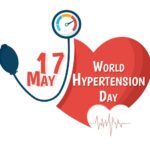Access to affordable and quality healthcare is the need of the hour
New Delhi, September 11, 2018: Often dubbed as lifestyle diseases, the noncommunicable diseases such as diabetes, hypertension, heart disease and cancers are mainly attributed to those living in the urban areas. However, according to recent estimates, these diseases now constitute a major health burden across tribal communities as well. What makes the situation worse is that these tribal communities are now also reporting mental illness cases.
Though tribal communities are just 8% of the Indian population, they account for about 30% percent of all malaria cases. The goal of malaria elimination by 2030 cannot be met unless tribal health is prioritized as majority of malaria cases and fatalities are from these areas. Although other indicators including maternal and child health, malnutrition, and stunting have improved, they are still a cause of concern.
The tribal people or scheduled tribes – constituting about 8.6% of India’s total population – now face a triple burden of diseases (communicable, non-communicable and mental health problems).
Speaking about this, Padma Shri Awardee, Dr KK Aggarwal, President, Heart Care Foundation of India (HCFI), said, “While non-communicable diseases have traditionally been thought of as affecting only the urban population, research indicates that there has been an increase in their prevalence in the tribal areas as well. This is largely due to an early epidemiologic transition. Mental health issues are also commonplace due to factors such as displacement and migration, mining, land acquisition and loss of livelihood. There is a lack of access to affordable and quality public health systems in these areas, which further exacerbates the situation. The need of the hour, therefore, is to strengthen the public health system in these areas and integrate the tribal medical system with modern systems of medicine for providing best possible care.”
According to the National Health Systems Resource Centre, there is an overall deficit of 20% sub-centres, 30% PHCs and 22% CHCs in ten major states with tribal populations.
Adding further, Dr Aggarwal said, “The need of the hour is an urgently integrated action on health care to make it universally accessible and affordable at the same time. This will not only help address the health needs but also have a positive effect on poverty and growth levels. A strategy that makes citizens more competitive and act as an asset to the country’s growth is what is required at this juncture.”
While the demand for access to better and quality healthcare services continues, each one of us has a responsibility to take care of ourselves. This is more for people in the urban pockets of the country.
- Develop healthy habits including eating, sleeping, and exercising right.
- Do not overdo anything. From drinking to using the cell phone, everything must be in moderation.
- Follow ancient wisdom. Do Yoga and Meditation for your mental and spiritual wellbeing and maintain equilibrium. Allow your body to heal itself.
- Get periodic check-ups done. Early detection of most health problems can help in correcting lifestyles to slow the degeneration process and lead a longer and healthier life.
- Both active and passive smoking are harmful for the body.
- Manage your blood cholesterol, blood pressure as well as blood sugar.
- Maintain optimum body weight. Limit your salt intake.







